5 C's Needed To Set Up Your Nomad Life...
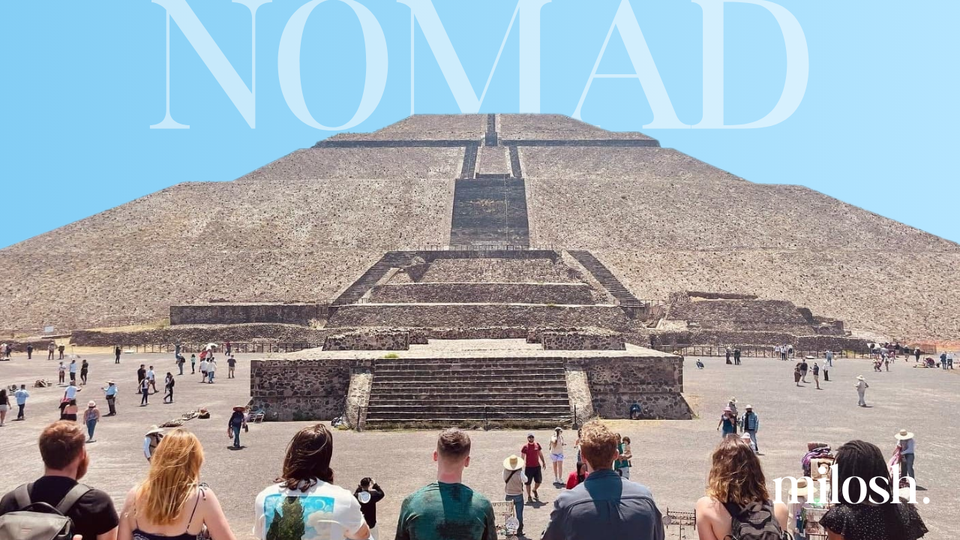
written at Myra café, Barceloneta beach, Barcelona, Spain
Last day of work with my contracted client. Something I’ve been looking forward to for some time now. Not because I did not enjoy working with them but rather because I wanted more time for writing. I said my goodbyes to all my coworkers and ventured towards the beach.
With a pre-charged laptop in my backpack, I’m walking out of the metro station at Barceloneta. Serious face on, I'm listening to one of Lex Fridman’s podcasts. As usual, he makes me think deeply about the purpose of life. What even is one’s purpose? The thing I love about Lex is how genuine he is. He is aware of his flaws as well as of his weaknesses. I guess we all are. Are we comfortable with speaking about it publicly? Not sure.
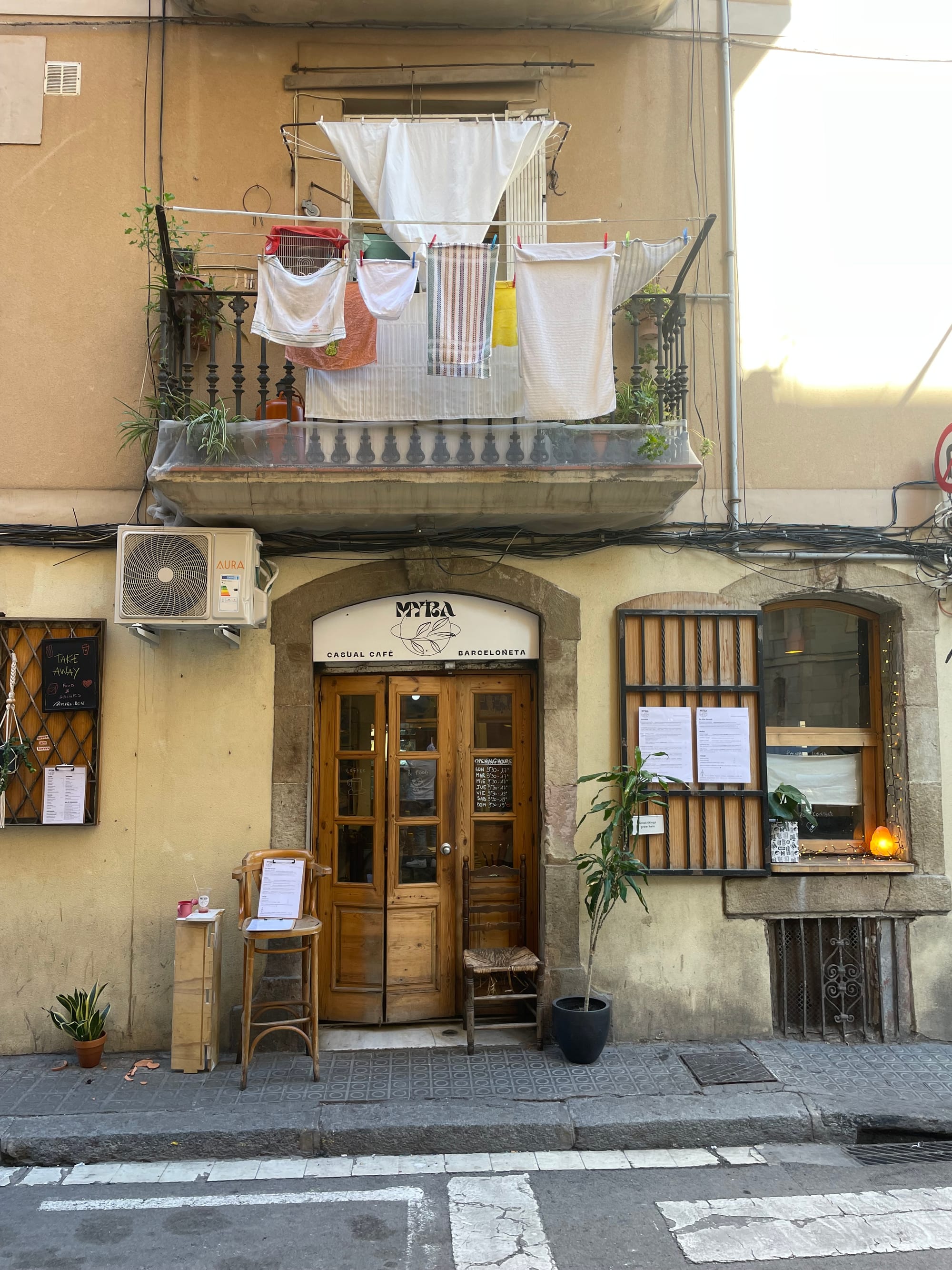
This week, I’ve had a leaving interview with a COO of the company I’ve worked with. He asked me about the biggest challenges and the best benefits they offer to their contractors and employees.
I was genuine. Without thinking, I blasted “remote work”. For me, remote work feels a benefit 100x higher than any of the corporate bullsh*t. Sports cards, pizza Fridays, company breakfast or any other made-up buzzwords have become a synonym of "benefits". It will hardly evoke the feeling of trust.
We’ve all seen the endless memes about “working from home” Fridays. People clean their houses, do laundry and take “home-office” days off.
When the pandemic hit first, I was working from my apartment. Although I’ve had a separate office room, it did not quite work for me. Never leaving my apartment. Eating, sleeping, and working in the same place. I felt like I was trapped in a sort of cage. That’s when I decided to go #nomad, explore more places, and see how to combine travel, social life & work at once.
What I’ve experienced in the past 3 years has been the complete opposite. My productivity level has skyrocketed since I turned #nomad.
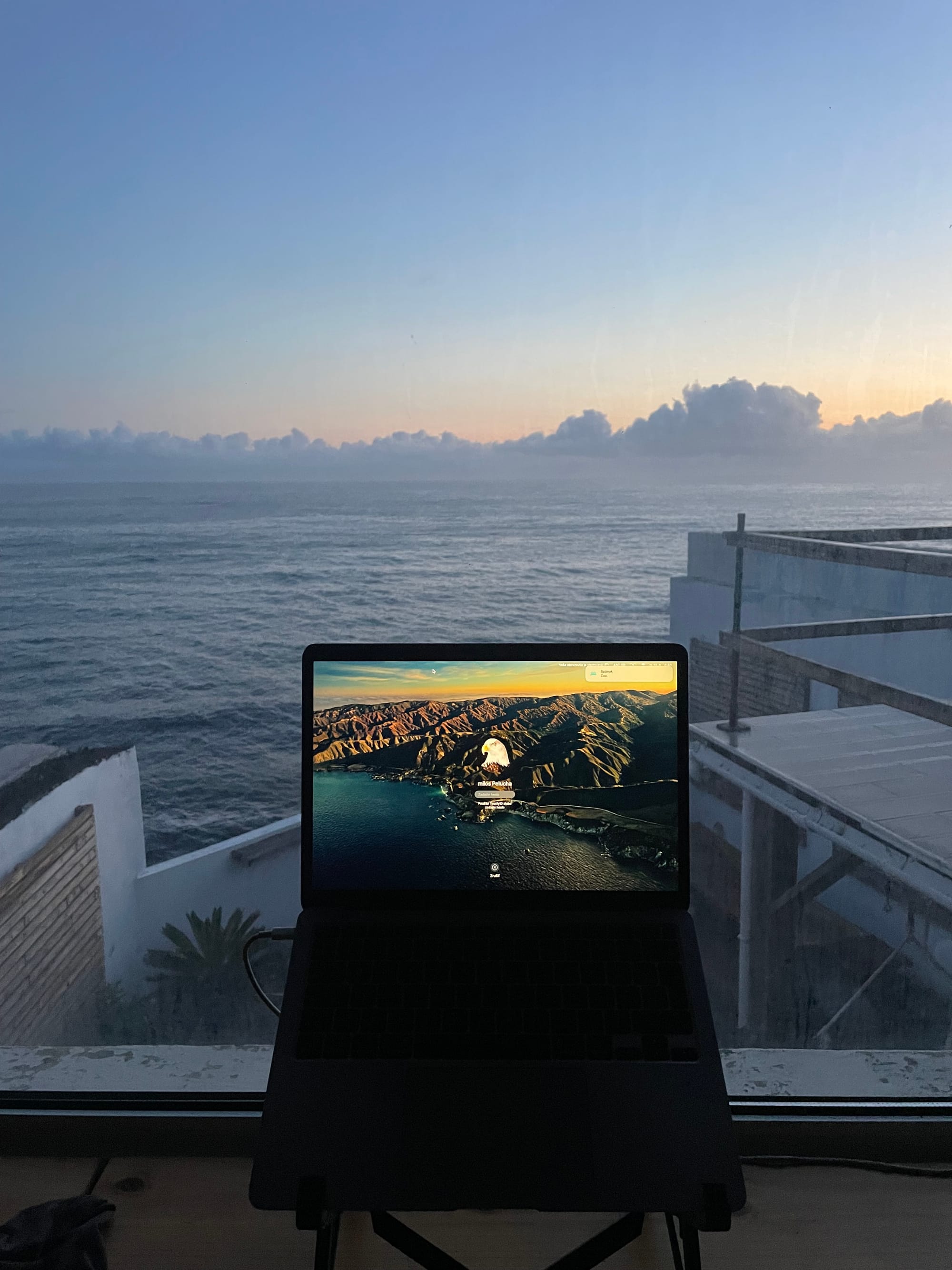
I know there are different types of people. My friend Lisi, a freelance coach, introduced me to the term “cave people”. Someone hits their productivity peak while being closed in their room and having nothing but a white wall behind their laptop. The others love to be “distracted” and don’t mind the rush of people in the coffee shop while working. I’m somewhere in between.
Every time I arrive at a new place, I need to do my research on places to work from, where to live, and what activities I can do. It could be draining but also lots of fun.
I have identified a 5C framework I follow every time I plan on moving to a new place.
1.Co-living
First things first. Who’s gonna provide me with a roof above my head as I’m technically homeless? Just kidding. Again, there are various types of people, each to their own. I hate living on my own. Everything tastes better when there is someone you can share it with. Humans are social creatures, and socialising should be a part of each person’s life. That’s why I always prefer staying in a co-living space.
It may come across as a pricier solution but provides you with everything you need for your nomad lifestyle. Room (private or shared, depending on your budget), group of friends, shared areas & a working space. Participate in family meetings, get to know your colivers, and organise events with them. Do you remember attending summer camps as a kid? This may feel similar. With one exception, you are guaranteed to have more fun!
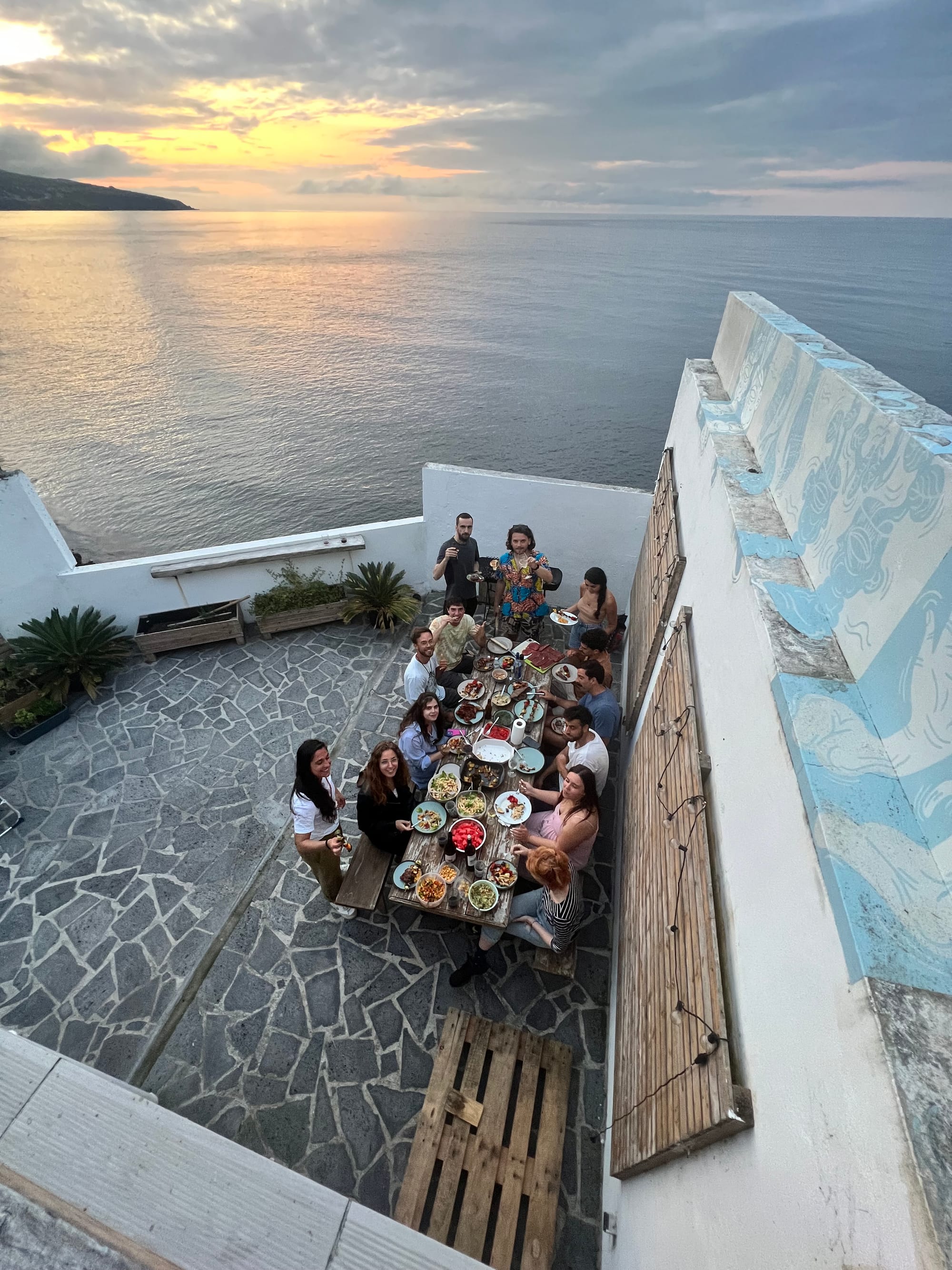
First, I open mapmelon.com - a startup run by 2 nomads Ramon & Sole - providing you with all things coliving. By booking via MapMelon, you can read the reviews from nomads, find out what their experience at every coliving was like and choose your destination. If you don't want to share a house with strangers & prefer to have a space of your own, you can rent an AirBNB apartment, getting a short-term rental, or staying in a hotel/hostel. Depending on how long you wish to stay in a destination and how social you wish to get.
Co-living is an up-and-coming concept that I will dedicate a separate article to. I’m currently in the process of building one at my favourite European destination.
2.Co-working
Working from a co-working space is like studying in a library. Group motivation seeing other people getting sh*t done. Would you like to come to your office and have a chat with your coworkers? Do you hate coming to the office and chatting with your colleagues?
You can do it both in a co-working space. I love having a wee chat with people here and there. These places normally have entrepreneurs, remote workers, freelancers, creators and other interesting people. Learn more about new industries, enhance your network with great connections, and get inspired—all as a side effect of your coworking membership.
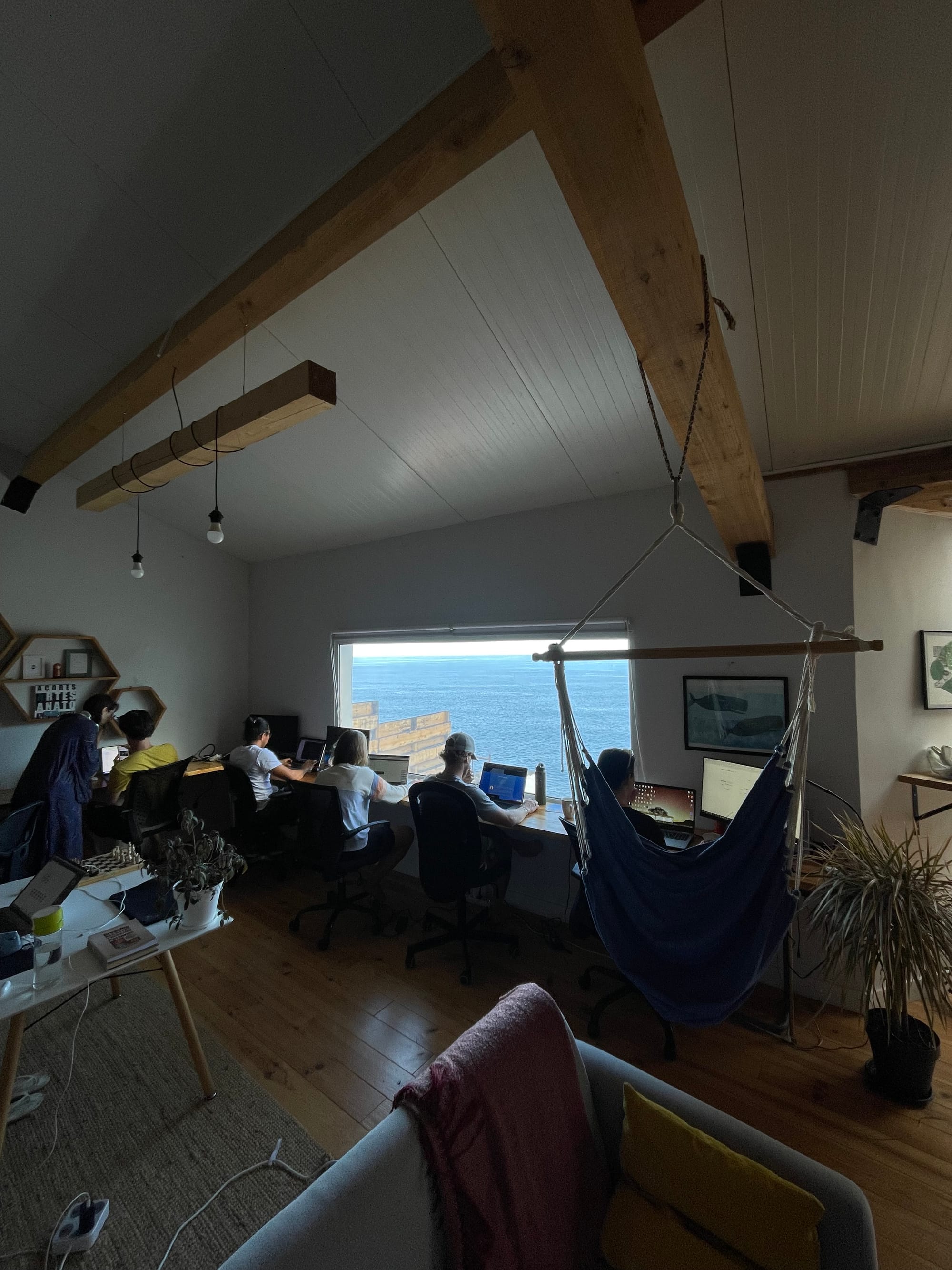
Do you wish to come and work from a coworking space and surround yourself with people but have no interest in socialising? Perfect. No one forces you to talk to your colleagues like a regular office job does. It’s fully your call. Work from a quiet zone and get your stuff done. No one will think you're a weirdo.
One negative about coworking space is privacy. Some jobs require more phone calls than others. While the majority of the coworking spaces offer phone boots - it is not too comfortable to spend much time in them. Hence why coliving is my go-to. Have 24/7 access to coworking space - get the focus tasks done when it’s empty. Then, take calls from your room without bothering anyone and be closed in a box.
Overall - I prefer working from the co-working spaces to get the feeling of group pressure.
3.Community
Who do I really work & live with on my travels?
Some people may argue you don’t have to stay in a coliving space in order to become a part of a community. I feel this would be right in a certain nomad hub.
Places like Madeira, Tenerife, Bali, Chiang Mai or Latin American cities like Medellín, Buenos Aires or CDMX are filled with digital nomads. It’s almost impossible to walk into a nice coffee shop without seeing foreigners getting work done from there. So why should one bother staying in a coliving space?
The answer varies depending on what are you looking for. For me, the most enriching part of my travels is the people that I get to meet. Both locals & foreigners. Learn from them. Create meaningful connections. Those are much more easily created if you become too close to someone.
You can hardly get to know a person if you meet 1 a week at a nomad meet-up at a bar, have a few drinks and chat. It’s the random Wednesday nights when someone decides to make lasagna for a full house of people without asking for anything in return. Drink red wine with your peers on the terrace until 3 AM discussing what are the greatest fears in your life or what dog breed you would be based on your personality. The power of sharing a house with friends. You get to meet them at their low & their high, without playing any games, striking any pose, or wearing their sweatpants.
My amigo Theo has been a minimalist nomad for 4 years. Spending 97% of his time living in living spaces around the world. He wrote a great article about the coliving concept: https://mirror.xyz/penseur.eth/UqHOUvmLF0A6l-Nw8eKxkEPSCuAehgAftIcf1YJl_Bc
He came up with a chart that stayed in my mind ever since.
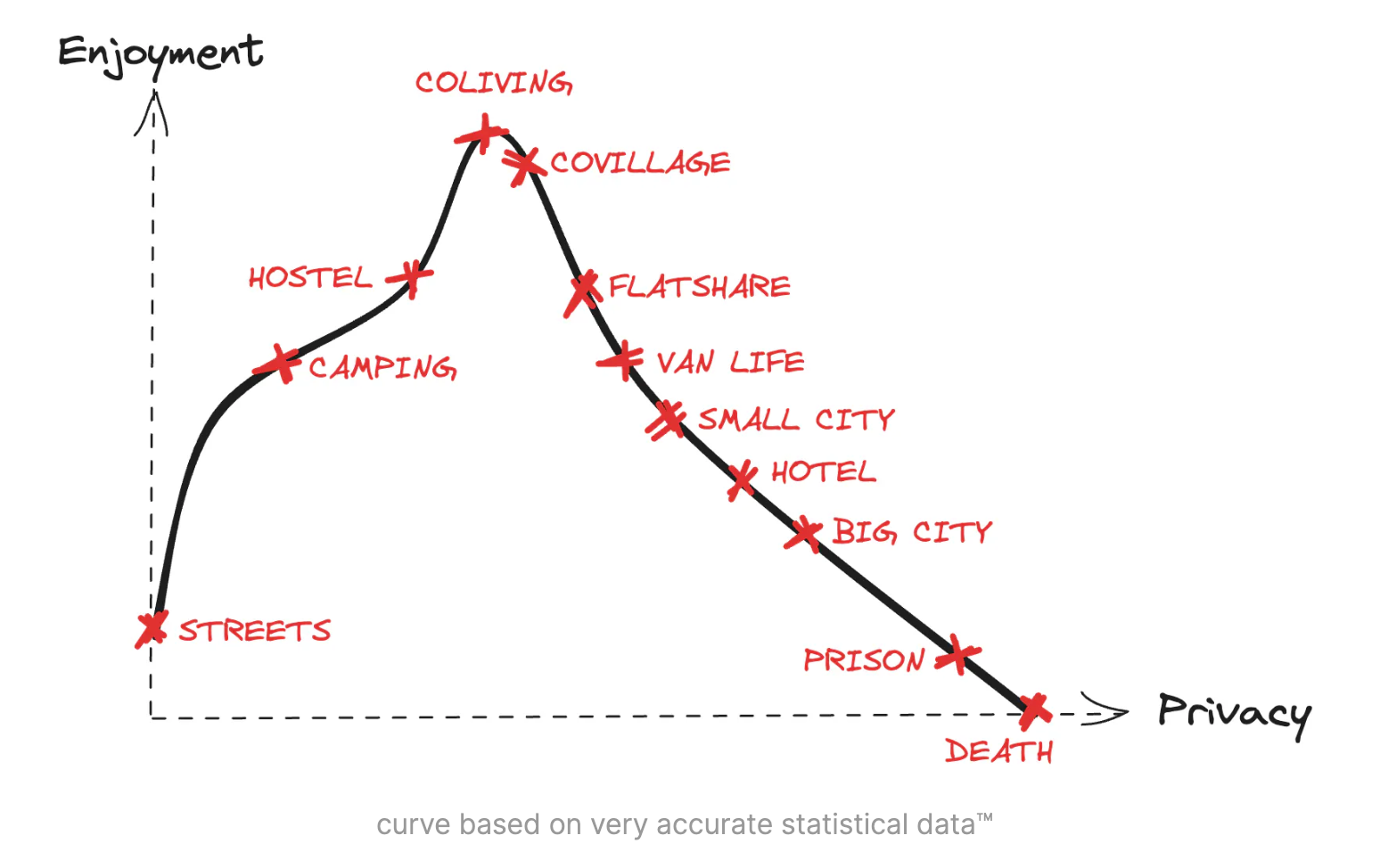
He dwells in how lonely different places can turn and why sharing a house with like-minded people is the healthiest way to live your life. He highlights how lonely living in big cities can be or how disastrous sharing a flat with someone with completely different values can be. How much of a difference a proper community manager can make..
When talking to my nomad friends about what they miss the most about the lifestyle, I normally get 2 responses. A routine and a stable group of friends.
The community truly makes a difference, especially if you are in nomad life for a long haul.
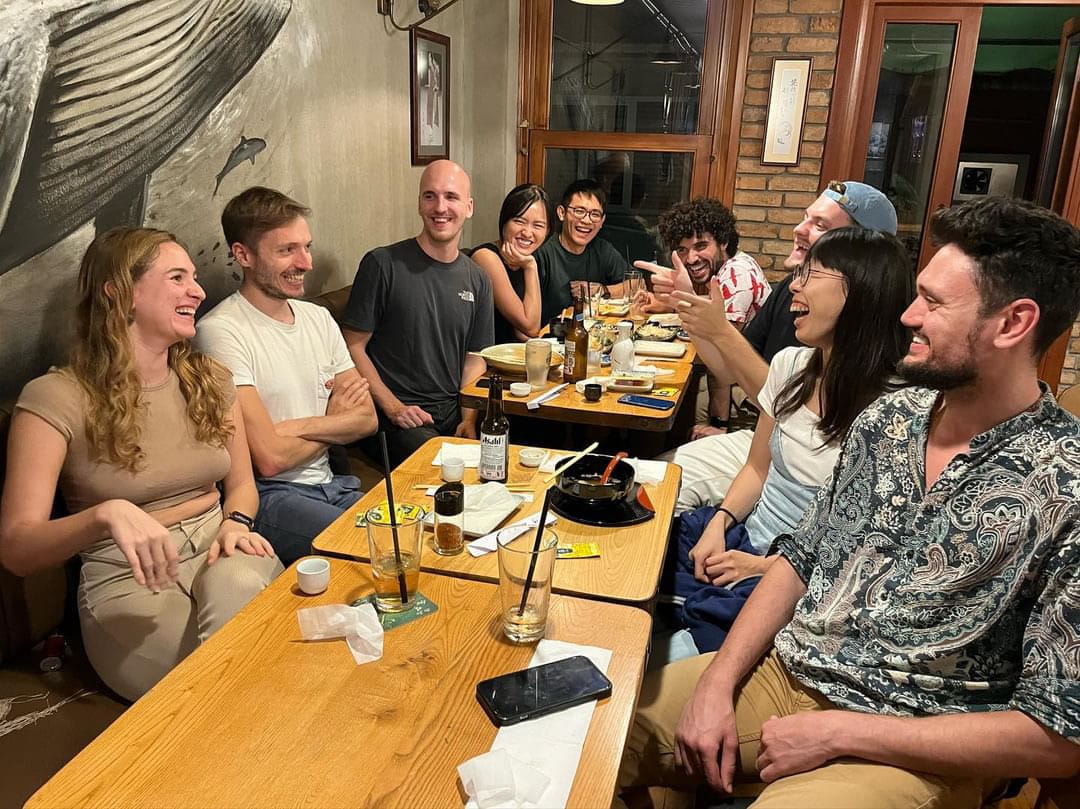
4.Challenges
Working remotely & spending most of your time staring at a laptop screen is not sustainable. It brings some challenges to tackle. As mentioned above, one of the biggest challenges is keeping your routine. That includes sports, reading, learning, or any activity you may want to do in your free time.
For me, doing local things always comes first. I’ve never been a big fan of martial arts - yet since my first visit to Thailand, I fell in love with practising Muay Thai. When spending time in the Azores, I would invest hundreds of hours to be able to stay on a surfboard. On Madeira, I would play 5-a-side football with locals & start jiu-jitsu. In Barcelona, I’m trying to infiltrate the beach volleyball community. In Scotland or Mexico, I would spend my days hiking. Winter in the Alps or Japan? Skiing, ski-touring, nordic skiing. You name it. The important thing is to move.
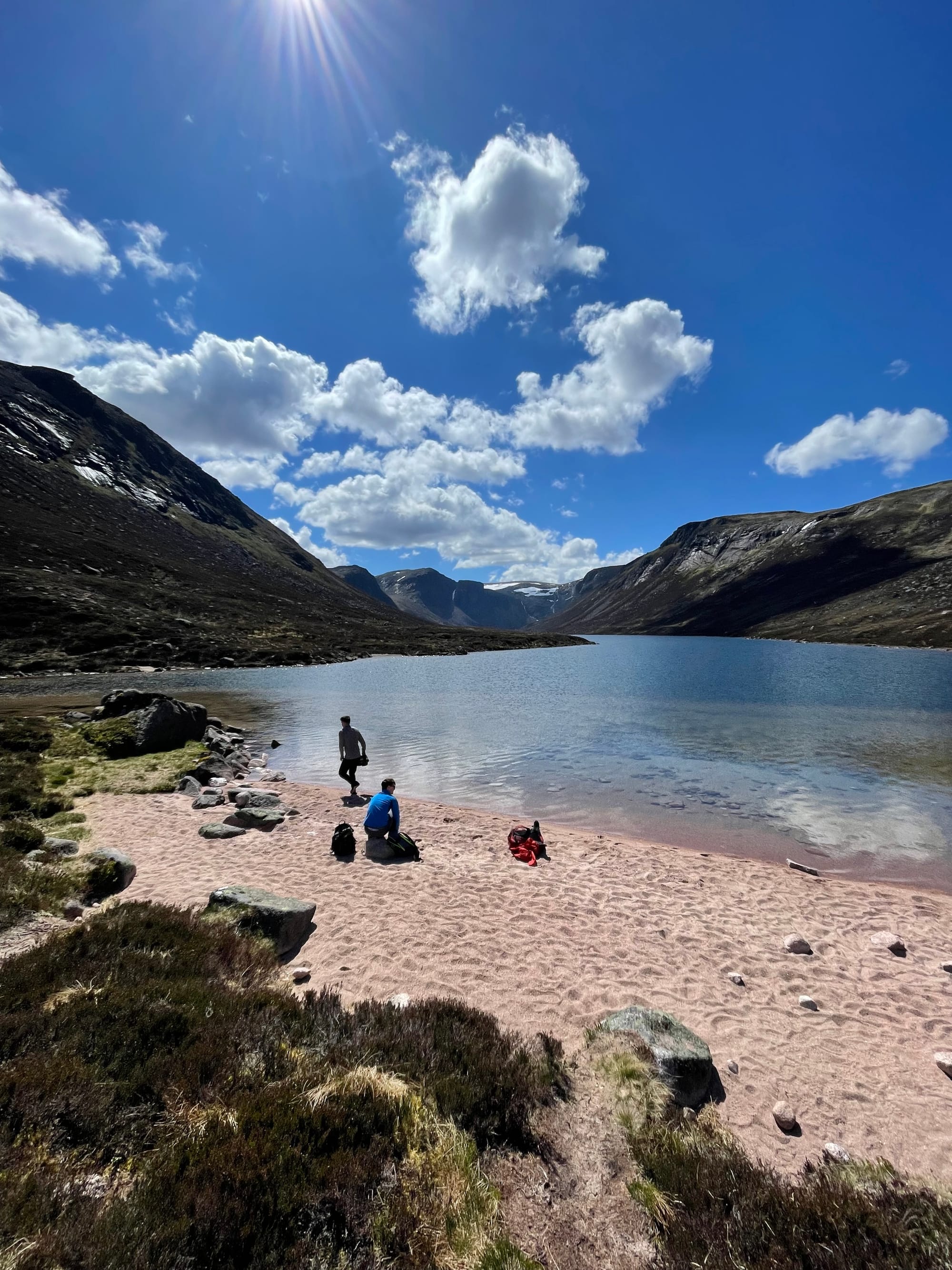
If you don’t feel like doing any of these, just pack a pair of running shoes and run. It’s one of the best things to get to know the places where you stay. It’s free and helps create great stamina! Or sign up for a local gym. Movement & an off-screen time are absolute musts to live a balanced, healthy life.
5.Climate
Last but not least, the weather & seasonality. The vast majority of nomads are not quite winter lovers and seek the sun. I can only speak for Europe, but to be fully honest - the time between November and March is not so pretty. Short days, lots of rain/snow & depressive feelings around. I grew up in a mountainous area in Northern Slovakia - back in the day we would have tons of snow, providing us with fun—skiing, ice skating, and playing hockey. Even walking outside feels so much better if the streets & hills are covered with snow. If there is no snow - winter becomes painful. In the last couple of years, the snow in Europe has been shambolic - resulting in us, skiing enthusiasts, having to go and chase powder overseas! That’s for another story, though.
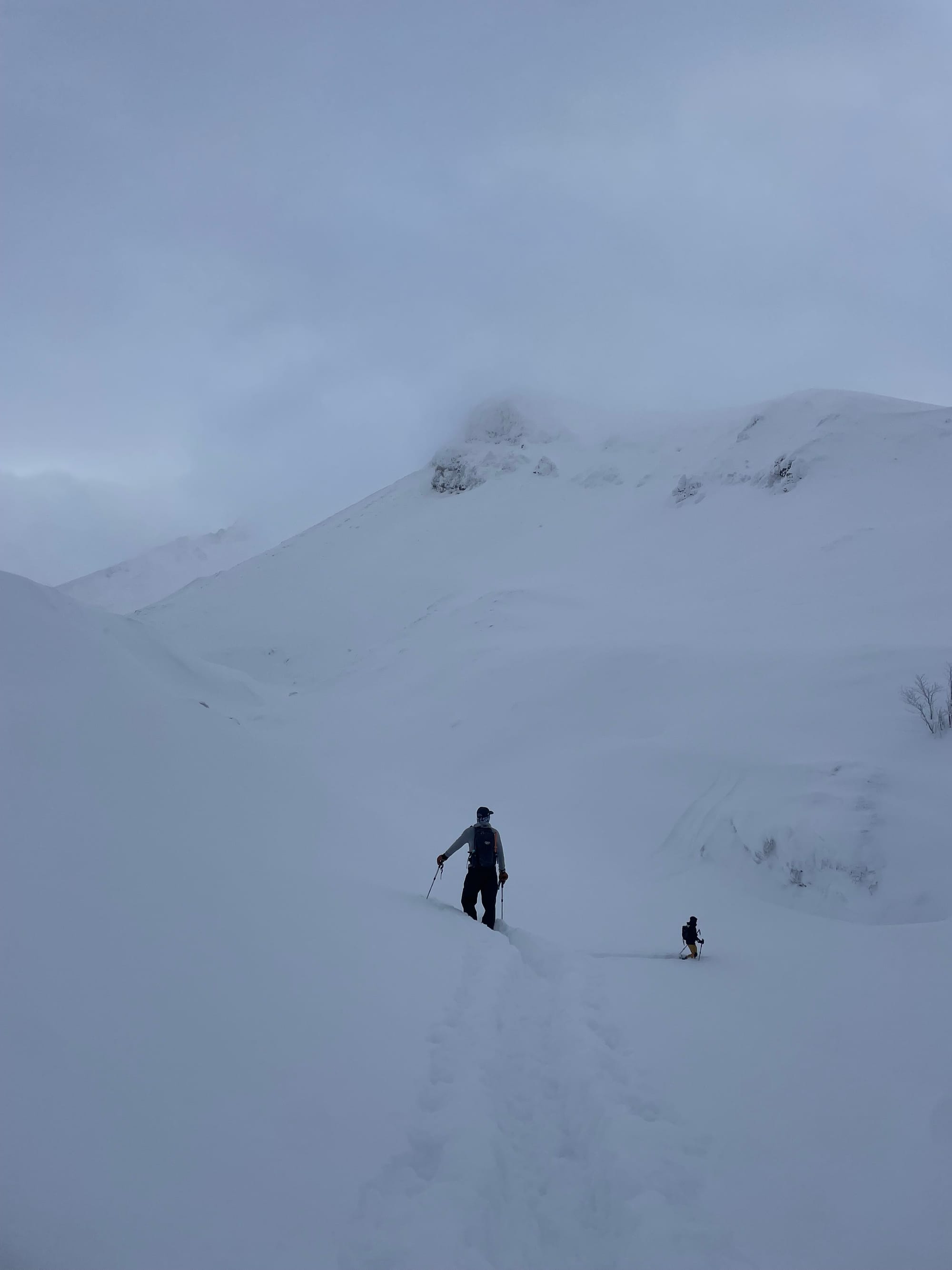
I started seeking refuge in those months - leaving for warm Asian countries. Spending Christmas Eve in Thailand or Vietnam and New Year's celebrations in Hanoi or Bangkok. The weather is not the only reason to time your trip. One of the most powerful experiences you can get is visiting local festivities. The world is a mind-blowing place where different cultures celebrate different festivals with various meanings. Carnaval may be the best time of the year to visit Latin America. Diwali or Holi festival is enticing for tourists when coming to India, Lunar New Year in China, Hong Kong or Taiwan & Songkran in Thailand. The list can go on and on. Honestly, I do not plan my travels according to local festivities - yet I was lucky enough to witness some of them.
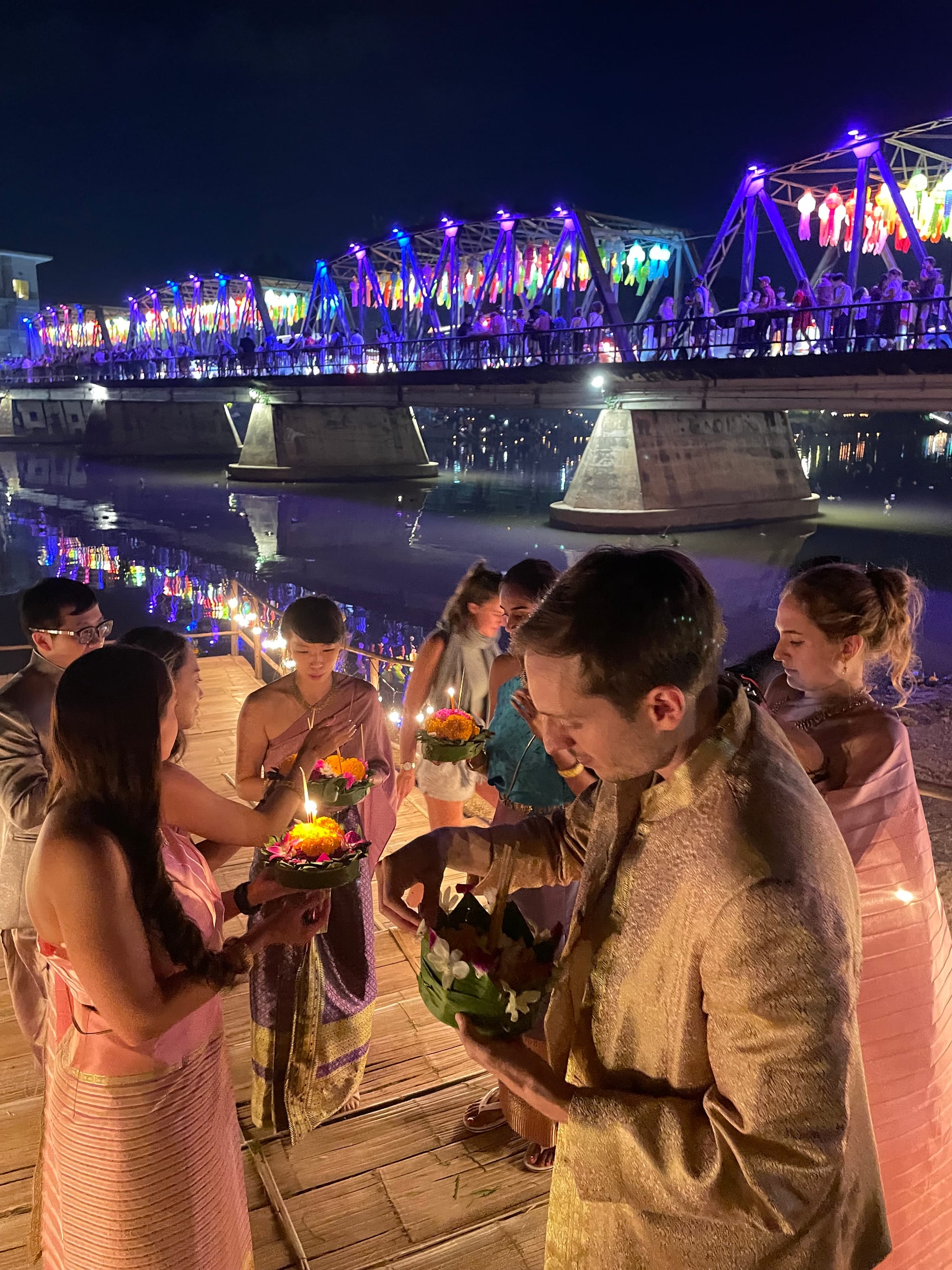
Barranquilla in Colombia gave me the wildest street party of my life, celebrating the Carnaval on the streets. In Thailand, I've seen a lantern festival called Yi Peng or Loy Krathong two years in a row. 'Loy Krathong' means 'to float a basket’. People release baskets made out of flowers on the rivers. It’s a way of paying respect to the Goddess of Water for a year's worth of her abundant supply and asking for an apology for polluting the waters. These festivals brought a different light on the countries, and their people and disrupted my view of how life works. And that’s exactly what travel should be like.
Learning the unknown, exploring the unexplored, and broadening your horizons all while staying humble.
Have you been thinking about switching to a nomad lifestyle but you feel afraid to leap into the unknown? Follow the 5 steps I've outlined above, and you will be more than fine. Or send me an email - I will be glad to help.
And don't forget 👇

